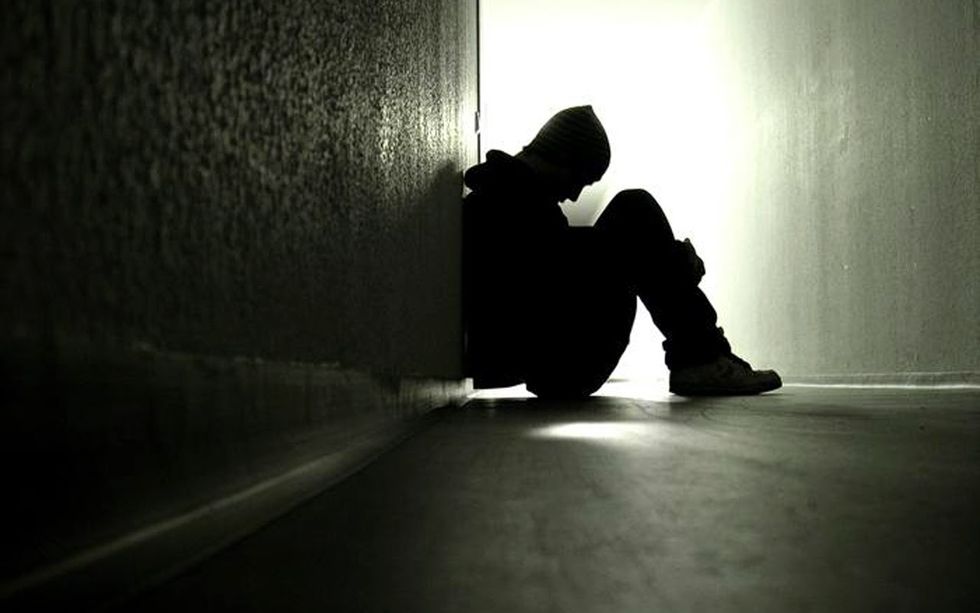"My friends don’t want me around and I
have invaded their privacy by Bebo and
found out that they hate me but feel sorry
for me and bitch about me. Everything I
say to them goes around my school. They
have taken over my Bebo account more than
once and sent messages around saying that I
had a sex change when I went on holidays.
They are the only people in my class that I
hang around with and I don’t want to lose
them but I have become depressed and suici-
dal and am afraid that if I’m pushed over
the edge then it will be too late."
—Anonymous
"My friends don’t want me around and I have invaded their privacy by Bebo and found out that they hate me but feel sorry for me and bitch about me. Everything I say to them goes around my school. They have taken over my Bebo account more than once and sent messages around saying that I had a sex change when I went on holidays. They are the only people in my class that I hang around with and I don’t want to lose them but I have become depressed and suici- dal and am afraid that if I’m pushed over the edge then it will be too late."
—Anonymous
The Facts:
There is a strong correlation between bullying and suicide. All around us, people are learning more and more about the importance of not only being kind to one another but also, how to help those who fall victim to these scenarios.
Recent studies show that out out every 1 death caused by suicide (caused by bullying) there area lead 100 attempted suicides. The Centers for Disease Control (CDC) reveal that approximately 4,400 death occur every year from suicide. Students who are bullied are 2 to 9 times more likely to consider suicide than non-bully victims. From 1999 to 2014 suicide rates have jumped 24% from about 10.5:100,000 people to 13:100,000 people. Since 2015, this rate has increased even more.
How bullying occurs:
20 years ago, bullying was an aspect of school, more often than not occurring only in schools. However, now with electronics and the rise of social media- bullying has become a harsh reality for many people even after walking off of a school campus.
Cyberbullying can take many forms from sending a purposefully mean and hurtful message to someone, to spreading rumors, to even sexting by circulating provocative pictures or messages about a person through group chats and online accounts. Cyberbullying has become a daily harassment and harmfulness to many students and even adults. Cyberbullying involves the usage of cell phones, laptops, tablets, just about anything that can access the internet and social media networks to bully another person.
Regardless of true intentions, bullying of any form leads to the psychological damage of many around us, it is (sadly) common among many adolescents and teenagers. According to cyberbullying statistics from the i-SAFE Foundation over half of kids between 11-19 have been bullied online and about the same number of adolescents have been engaged in the bullying itself. More than 1 in 3 people have been threatened online in act with bullying. Out off all of this, well over half of cyberbullying victims ever tell an adult.
How to help to stop bullying:
Adults and children alike can do something that help reduce the cyberbullying/bullying statistics. Parents, talk to your children, explain to them the harsh outcomes of being a bully can have on not only the victim but also the family. Make it a point to never send mean, hurtful, or damaging messages, even if they did not start it themselves. Encourage children/teens/adults to tell someone about their bullying or if they know about someone else doing or receiving the bullying. Also encourage teenagers to never share something over social media that they wouldn't want everyone-friend or foe- to know about. Lastly, instill in those around you to be kind to everyone regardless of social status, skin color, race, ethnicity, religion, age, sex, etc..
How to help a victim of bullying:
Depending on the severity of the bullying you should know how to handle every situation. If someone has been a victim of bullying opens up to you about its encourage them to talk to a guidance councilor at school, a teachers, other adults, anyone. Encourage them to receive help if they are contemplating suicide, or if you have discovered that they have intentions to harm themselves or someone around them call 911 and inform teachers, parents and other adults.
How/where to seek help:
If you or someone you know is feeling helpless, hopeless, depressed or is in need of help, please encourage them to seek help immediately. Contact the National Suicide Prevention Lifeline online or at 1-800-273-TALK (8255). The toll-free call goes to the nearest crisis center in our national network. These centers provide 24-hour crisis counseling and mental health referrals.
If you or someone you know whats to give help, encourage them to volunteer at the Crisis Text Line at https://www.crisistextline.org/volunteer/.
Doing something is always better than doing nothing. Join the high against bullying and suicide.
“Knowing what's right doesn't mean much unless you do what's right.”
― Theodore Roosevelt
















